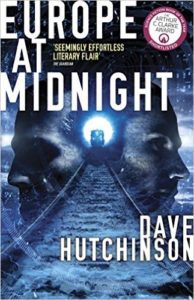Czeslaw Milosz was born in 1911 on a farm in what was then part of the Russian Empire and is now near the center of independent Lithuania. He died in 2004 in Krakow, Poland’s old capital, which had been under Habsburg rule when he was born, but which was one of several second cities in free and independent Poland by the end of his life. He attended university in Vilnius (Wilno), and spent World War II in Warsaw. He joined the postwar government, but defected to the West in 1951, living first in Paris and then California, where he was a professor at Berkeley for many years. After 1989, he spent part of each year in Poland.
In writing about Polish literature during interwar independence, during the war, and during Communism, Milosz is writing about his peers, his fellow artists who engaged with their times, with the inheritance of Polish literature that he has described in the book’s earlier chapters, and with each other. He is, perforce, required to reckon with his own stature and legacy as well.
Poland began the twentieth century as it had begun the nineteenth: divided among Russian, Austrian and German rule. The First World War and the collapse of the three empires provided an opportunity for Poland to return to the map of Europe for the first time since 1795. The ideals of the rebellions, of the romantic writers, of the tradition of upholding Polish language and culture under foreign rule seemed to have come to fruition. “The joy, even euphoria, that followed the recovery of independence in 1918 was faithfully noted by literature.” (p. 384) This is the period Milosz describes in some of his essays in To Begin Where I Am (which I read and liked immensely) and his first novel, The Issa Valley (which I have not yet read). Looking at the literature of independent Poland, he begins with his vocation, poetry, and notes that while some writers of Young Poland were still active, a new generation was also emerging, centered on a review called Skamander.


